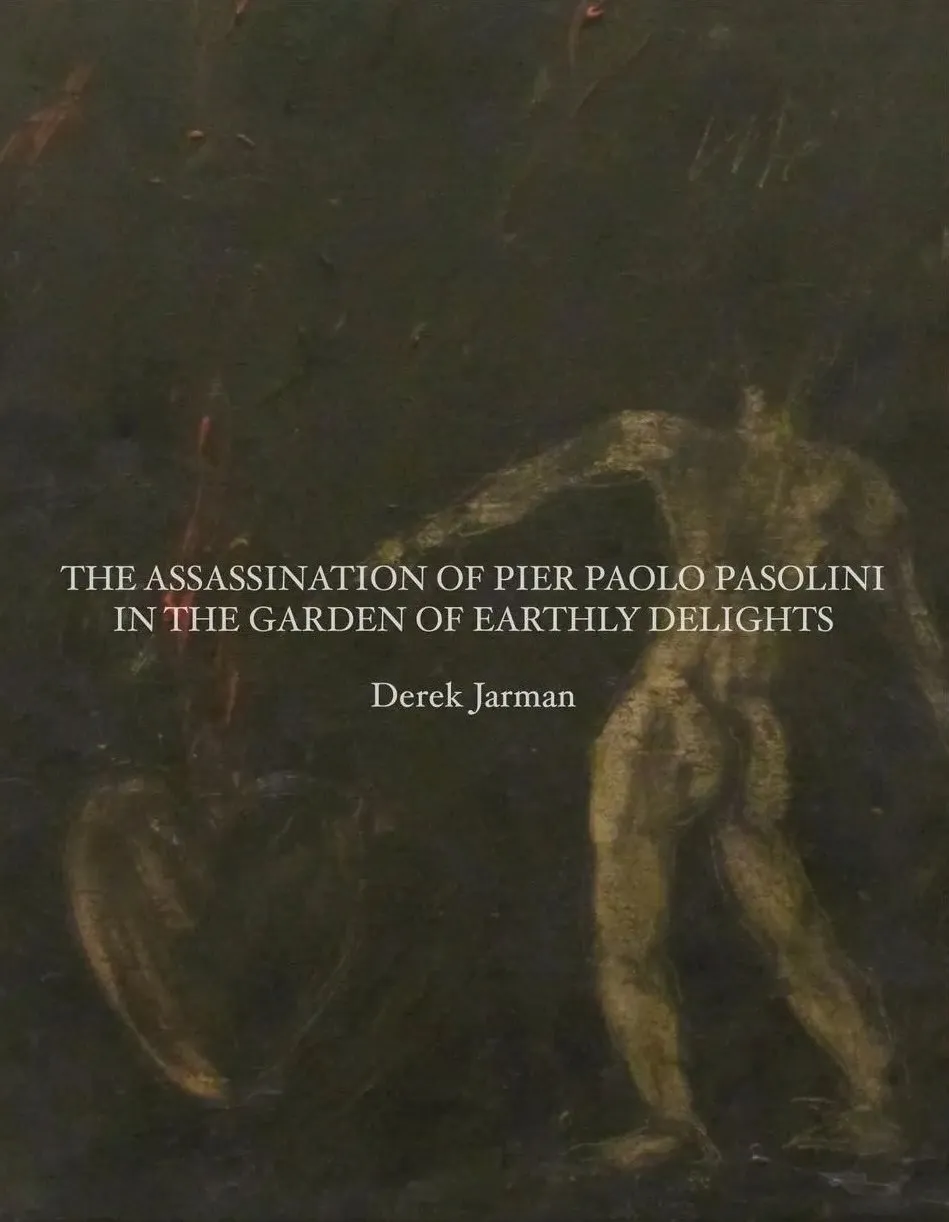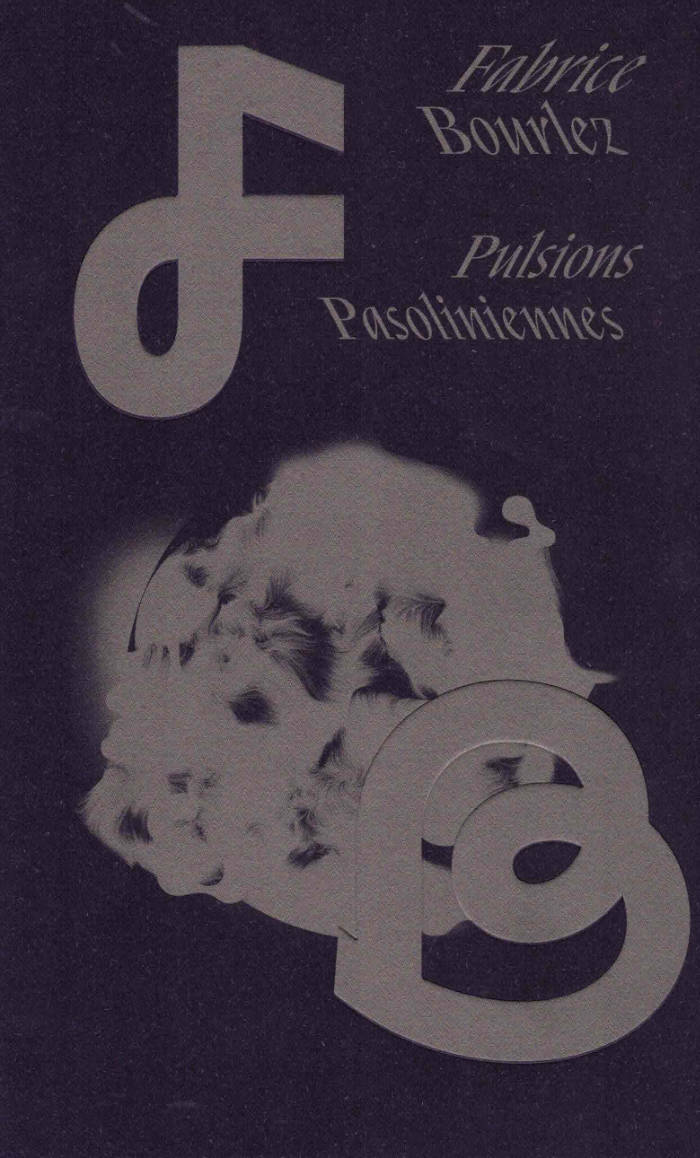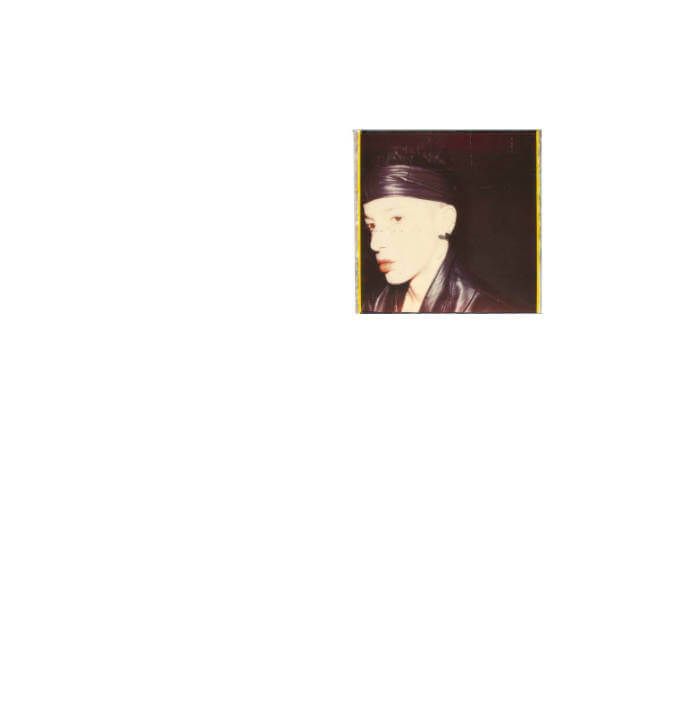Pier Paolo Pasolini
Pier Paolo Pasolini

La rabbia / Anger
In a first-time English language translation by Cristina Viti to mark the poet’s centenary, Tenement Press will publish Pier Paolo Pasolini’s groundbreaking, filmic work of prose and verse, La rabbia / Anger.
Why is our life dominated by discontent, by anguish, by the fear of war, by war? In order to answer this question I have written La rabbia, not following a chronological or perhaps even a logical thread, but only my political reasons and my poetic sense. - Pier Paolo Pasolini
Written in response to producer Gastone Ferranti’s request for his comments on a set of newsreel items, the poet would respond with a montage of his own. Via the unfolding of a chrysalis of images, in La rabbia (1963), Pasolini’s lens pans over Soviet repression in Hungary; the Cuban revolution; (the utopian object of) space exploration; political imprisonment in Algeria; the liberation of the former European colonies; the election of Pope John XXIII; the prospect of revolution in Africa and the Middle East; in Europe and in Latin America... Here, we’ve a panoply of photorealist intimations of Pasolini’s ‘poetic sense.’ The death of Marilyn Monroe crests as an idea in this tidal pooling of reflections, and as the poet’s line lights out for conceptual rhymes and counterpoints.
In Viti’s translation, the weave of prose and poetry that forms La rabbia portrays the vitality of Pasolini’s work in its capacity to speak to both the specifics of his contexts, the character of our own present tense, and the ironic fact of a life lived against the gulf of discontent in its myriad forms. Here, we’ve a startling confrontation of a revolutionary struggle in stasis set in lines that crystallise a rallying call against blindness. ‘I’ll not have peace, not ever,’ he writes. A lucid acceptance of the poet’s restlessness, and a marker for Pasolini’s commitment to a solidarity with the oppressed that we find reaffirmed on every page, in La rabbia the poet charts how ‘the powerful world of capital takes an abstract painting as its brash banner’ in this unravelling of ‘crisis in the world.’

Boys Alive
A daring novel, once widely censored, about the scrappy, harrowing, and inventive lives of Rome's unhoused youth by one of Italy's greatest film directors.
Boys Alive, published in 1955, was Pier Paolo Pasolini's first work of fiction and it remains his best known. Written in the aftermath of Pasolini's move from the provinces to Rome, the novel captures the. hunger and anger, waywardness and squalor of the big city. The life of the novel is the life of the city streets; from the streets, too, come its raw, mongrel, assaultive language. Here unblinkered realism and passionate lyricism meet in a vision of a vast urban inferno, blazing with darkness and light.
There is no one story to the book, only stories, splitting off, breaking away, going nowhere, flaming out, stories in which scenes of comic debacle, bitter conflict, wild joy, and crushing disappointment quickly follow. Pasolini's young characters have nothing to trade on except youth, and the struggle to live is unending. They loot, hustle, scavenge, steal. Somehow money will turn up; as soon as it does it will get spent. The main thing, in any case, is to have fun, and so the boys boast and vie, the desperate uncertainty of their days and nights offset by the fabulous inventiveness of their words. A warehouse heist, a night of gambling, the hunt for sex: The world of Boys Alive is a world in convulsion where at any instant disaster may strike.
Tim Parks' new translation of Pasolini's early masterpiece brings out the salt and brilliance of a still-scandalous work of art.

Theorem
This tale about seduction, obsession, family, and the confines of capitalism is one of director Pier Paolo Pasolini's most fascinating creations, based on his transcendent film of the same name.
Theorem is the most enigmatic of Pier Paolo Pasolini's four novels. The book started as a poem and took shape both as a work of fiction and a film, also called Theorem, released the same year. In short prose chapters interspersed with stark passages of poetry, Pasolini tells a story of transfiguration and trauma.
To the suburban mansion of a prosperous Milanese businessman comes a mysterious and beautiful young man who invites himself to stay. From the beginning he exercises a strange fascination on the inhabitants of the house, and soon everyone, from the busy father to the frustrated mother, from the yearning daughter to the weak-willed son to the housemaid from the country, has fallen in love with him. Then, as mysteriously as he appeared, the infatuating young man departs. How will these people he has touched so deeply do without him? Is there a passage out of the spiritual desert of modern capitalism into a new awakening, both of the senses and of the soul? Only questions remain at the end of a book that is at once a bedroom comedy, a political novel, and a religious parable.
And more

The Assassination of Pier Paolo Pasolini in the Garden of Earthly Delights
Derek Jarman’s unrealised film treatment, The Assassination of Pier Paolo Pasolini in the Garden of Earthly Delights, takes as its subject matter the events leading up to and including the murder of Italian film director Pier Paolo Pasolini following the making of his final film Saló, or the 120 Days of Sodom in 1975.
Written in 1984, the setting of Jarman's film is inspired by the renaissance painter Hieronymus Bosch’s triptych, The Garden of Earthly Delights (1490-1500), a painting that depicts both the joys and perils of temptation, and which Jarman encountered on a visit to the Museo de Prado in Madrid the year he began working on the project.
For the first time, a facsimile of the treatment is presented alongside reproductions from the film's workbook, which show Jarman's calligraphic notes towards the film’s sequences, themes, cinematography, lighting, sound, costume, casting and props.
2025 marks fifty years since Pasolini's murder and thirty-two since Jarman’s death due to AIDS. Against a backdrop of funding cuts to the arts and the arrival of the HIV/AIDS epidemic that vanished away so many important artists and visionaries, The Assassination of Pier Paolo Pasolini in the Garden of Earthly Delights is a powerful elegy to the decadence of queer cinema and the tragedy of its last auteur.
Derek Jarman was one of the most influential British artists of the twentieth century. His practice, as diverse as it was prolific, spanned painting, sculpture, film, writing, stage design, gardening and activism. He was an outspoken campaigner for LGBTQIA+ rights, and was one of the first public figures in the UK to raise awareness for those living with HIV/AIDS, announcing his own HIV diagnosis on the radio in 1986.

Pulsions pasoliniennes
An original reading of Pier Paolo Pasolini's work and “impulses”, between aesthetic and psychoanalytic reflection.
Une lecture originale du corpus et de la biographie de Pier Paolo Pasolini, sous le signe de l'éthique et des « pulsions » qui y sont à l'œuvre, entre réflexions esthétique et psychanalytique.
Relue à l'aune de la psychanalyse et des théories queer, l'œuvre de Pier Paolo Pasolini constitue un Dehors fertile pour la réflexion contemporaine. Pour faire face à l'apathie, pour affronter la souffrance, pour réveiller la réalité désabusée, comment tirer parti de la descente aux enfers pasoliniens ? Comment son travail peut-il aider à mieux appréhender le contemporain sans le condamner d'une traite ? Pasolini aimait se définir comme « une force du passé ». Il ne faut pas laisser sombrer sa lutte contre le conformisme petit bourgeois et le développement du capitalisme dans un conservatisme quelconque. La lutte pasolinienne, son combat au corps-à-corps avec la langue, le visible, le dicible ne peut rester vain.
Re-lire et re-revoir Pasolini pour nommer le contemporain : le chantier est vaste, d'autant plus imposant qu'il est resté inachevé. Films, pièces de théâtre, romans, poésies, essais... en chaque lieu, surgit la suspension des certitudes bien-pensantes et résonnent les voix des sans-voix : ragazzi, prostituées, spectres, lucioles, sous-prolétariat du monde entier. S'ensuit une série de questions déterminantes pour l'actualité de la pratique psychanalytique et de la pensée. Comment (se) dit-on ? Comment (se) réfléchit-on ? Comment (se) désire-t-on ? Où et comment retrouver un peu de « grande santé » ? Où et comment trouver un nouveau cap ?
D'Edipo Re à Salo, d'Orgia à Petrolio, de Comizi d'amore aux Ecrits corsaires, Pasolini décline des corps, des visages, des personnages animés par des pulsions qui ne cessent d'inventer une logique mettant au défi le moralisme de l'autorité paternelle. Ces pulsions répètent sans cesse un même échec. Que signifie cette omniprésence de l'échec, l'insistance de la foirade tant dans l'œuvre filmée qu'écrite ? Comment articuler le refus du père pasolinien avec son attachement revendiqué à l'œuvre freudienne? Répondre à ces questions, c'est entrer dans la poétique même de l'écriture pasolinienne et dans des questions psychanalytiques de la plus brûlante actualité.
Rapprocher Pasolini de la psychanalyse et des théories du genre ne vise ni à psychologiser son œuvre, ni à faire du poète un précurseur des idéologies queer. S'emparer des pulsions pasoliniennes, c'est, bien plutôt, mettre au travail la praxis par les idéologies : réveiller l'écoute analytique, les idéologies queer et l'esthétique pasolinienne.
L'essai se veut une porte d'entrée pour comprendre l'éthique à l'œuvre chez Pasolini et dans la pratique de l'inconscient. Son champ référentiel principal est le corpus pasolinien analysé à partir de l'œuvre freudienne et des apports lacaniens ainsi que de leurs reprises par les avancées des théories du genre (Teresa de Lauretis, Leo Bersani, Gayle Rubin...).

Pier Paolo Pasolini: Writing on Burning Paper
Annabel Brady-Brown, Giovanni Marchini Camia
Published on the centenary year of Pasolini’s birth, Pier Paolo Pasolini: Writing on Burning Paper is a dual edition that stages a dialogue between cinema today and Pasolini’s timeless films and words.
The two complementary volumes slide into one another, forming a unique set that evokes and celebrates Pasolini’s enduring influence. The smaller book features his epic autobiographical poem ‘Poet of the Ashes’, in a revised translation by esteemed poet Stephen Sartarelli; the larger book comprises original tributes by vital filmmakers from across the contemporary cinema landscape.
Twenty filmmakers shared personal reflections in the form of essays, poems, photographs, drawings and more: Catherine Breillat, Luise Donschen & Helena Wittmann, Jia Zhangke, Radu Jude, Payal Kapadia, Alexandre Koberidze, Dane Komljen, Mike Leigh, Mariano Llinás, Roberto Minervini, Valérie Massadian, Luc Moullet, Ben Rivers, Angela Schanelec, Ulrich Seidl, Basma al-Sharif, Deborah Stratman, Anocha Suwichakornpong and Gustavo Vinagre.

Love, Emily (vinyl LP)
The restored and remastered vinyl reissue of a sound performance by American writer Kathy Acker and French noise/experimental band Nox, published in 1987, with a poster and a previously unpublished set of documents, letters, texts and photos.
Originally released in a long sold-out edition of 50 cassette tapes, Love, Emily (Acte 3) was the third and final album of Michel Henritzi's industrial label AKT Production. Recorded in a Paris studio in 1987, this 25-minute collage of spoken word and noise saturations intersects two radical voices from literature and experimental music of the time: American author Kathy Acker reading excerpts from her book My Death My Life by Pier Paolo Pasolini, and Nox, mainstay of the French noise and industrial scene. Pulled from oblivion, restored and remastered for vinyl by Slow Moves, this archive gem crosses the clashing worlds of poetry and industrial music, melding Acker's thought-provoking words to absolute and inflexible industrial sounds. A lot of it is noise, but a lot of it is also play; research for a new mystique, generating unusual forms and unknown languages.
Published in a limited edition of 400 copies, this vinyl also comes with a long printed panel of previously unpublished photographs and letters from Kathy Acker, tracing the background exchanges that led to the collaboration between the groundbreaking writer, Henritzi and Nox, a poster of Kathy Acker with French translations and a download code featuring both music and extra archival material (interview and articles).
With Kathy Acker (voice), Gerome Nox (percussion, guitars, vocals), Mikhail H (guitars).

Kino/ Atelier - Program
With texts and contributions by Nicholas Vargelis, Kerstin Stakemeier, Steve Beck, Lis Rhodes, Leslie Bauer, Érik Bullot, C.Vanaik, VUE Committee, Shirley Clarke, Hilary Harris, Giuliana Bruno, Pier Paolo Pasolini, Peter Larsen, Elissa Suh, Straub-Huillet, Storm de Hirsch, Mark Fisher, Bruce Baillie, Rachel Haidu, Kai Althoff, Jennifer Reeves, Karl Holmqvist, Eros in Le Wind, Marie Menken and Jonas Raam.